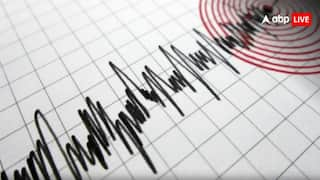LED TV Blast Reportedly Kills Teen: What Can Make A TV Explode?
Can a TV really explode with a blast strong enough to kill people and collapse walls? Read to find out.

A teenage boy has died following a severe explosion of an LED TV in Ghaziabad, as per recent media reports. Along with the death of the 19-year-old, the explosion also injured his mother, sister-in-law, and a friend. So massive was the impact of the blast that a portion of the wall that held the TV collapsed along with some concrete slabs.
The boy, reportedly identified by the police as Omendra, was hit in the face, chest, and neck by several projectiles. He was taken to a hospital in critical condition, where he succumbed to his injuries. Omendra’s mother and the friend are being treated.
Now, this begs the question: Can a TV really explode with a blast strong enough to kill people and collapse walls?
Reports said that the TV was an LED variant. Now, an LED TV has several components within it, capacitors being one of them. For those unaware, the essential function of a capacitor is to store electrical energy. Working just like a battery, it stores a small amount of power that is needed for the TV to operate and stay on standby mode when needed. They also help in reducing the noise of a TV’s visuals and reduce buzz in audio by damping sudden movements of current inside the TV.
Most TVs have several capacitors. Now, the chances of a capacitor actually exploding are very low. Either the capacitor quality needs to be extremely subpar, or the capacitors themselves need to be really old for them to burst. Even in the rare cases that they do, capacitors don’t cause a major blast. When they do explode, capacitors let out a ‘pop’ sound, with a very low impact that would often result in smoke coming out from the TV and usually nothing more.
In the case of the reported TV blast incident, the blast impact was strong enough to send shrapnels all over the room to injure viewers (assuming that the victim wasn’t sitting with his face stuck to the TV screen) and also collapse concrete slabs and portions of a solid wall that was holding the TV up. This kind of impact will require the sudden release of an immense amount of stored energy, resulting in a blast strong enough and a radius big enough to affect the TV and the wall behind it.
TVs can explode when there’s a sudden surge in voltage. This can happen in areas with faulty wiring. However, most modern TVs come with power dampers to avoid a heavy impact from such sudden voltage surges.
TVs can also explode from overheating, which can affect any electronic equipment as such. If a device is under operation for long in a continuous manner, chances are that this may fry the internal circuits and result in a fire, or a small blast.
For now, it is unclear which brand the TV in question belonged to. The police reportedly said that investigations are still ongoing. We hope to have a better understanding as more details are uncovered.
Related Video
Apple creates a new record in iPhone sales after launch of iPhone 16 | ABP Paisa Live






































